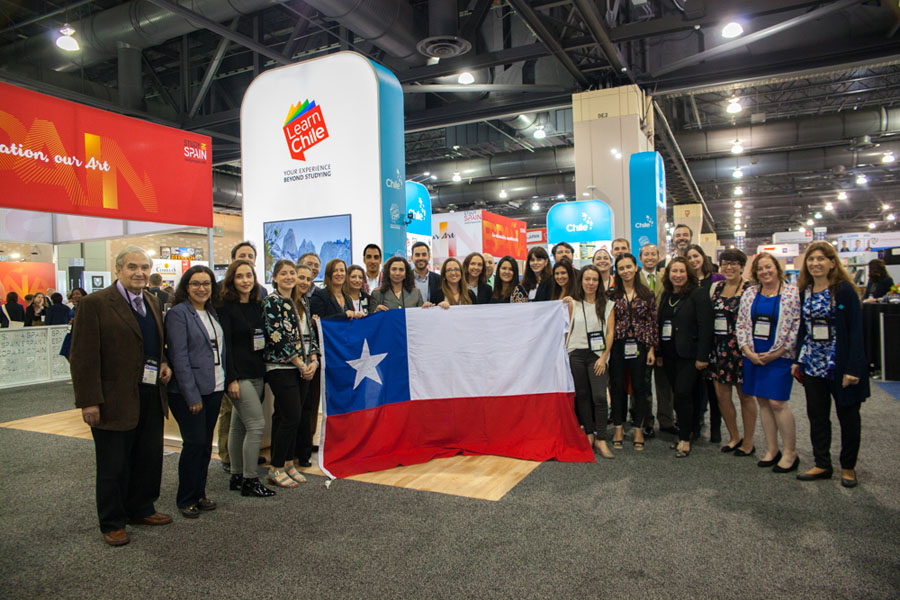|
More than 500 representatives of universities from all over the world showed their interest in starting or strengthening an academic partnership with Chile. The Universidad de La Frontera actively participated in this international convention on international higher education. |
According to a report published by the Image of Chile Foundation, the scientific and technological achievements of Chile have been the most positive topic in the foreign press. It has been the best reference for the 19 establishments from Chile who participated in the NAFSA 2018 Annual Conference and Expo. The Universidad de La Frontera, represented by the International Affair´s Office, has been part of this important event, which took place in Philadelphia, USA, from May 29th to June 1st. Each year, about ten thousand educators and representatives of universities from all over the world come together in order to get to know the latest tendencies in higher education and it is the most important opportunity to create new networks for academic internationalization. “A lot of institutions explicitly said that Chile is the country in Latin America where they want to start their cooperation in the South Cone,” Marcos Avilez, the director of Learn Chile, which consists of 24 establishments of higher education in Chile and is supported by ProChile, said. They want to transform the country into a magnet in higher education for foreign countries. “It is our fifth time at this Expo, and as a country we show the academic offer of Chile and the characteristics that position us as one of the most desired destinations in our region,” he added. “I am pleasantly surprised by the diversity of the people who get in touch with us in order to establish an academic cooperation,” said Elvis Campos, the representative of the Universidad La Serena, which has just been incorporated into the Learn Chile network and participated for the first time at NAFSA. On this occasion, representatives of this brand got together with the University Mobility Network in Asia and the Pacific (UMAP) and with internationalization networks for universities that have just been crated in Ecuador, Colombia and Peru. The aim was to transfer knowledge and experiences and to create joint initiatives for educational cooperation abroad. “I think that the main challenge regarding internationalization of our countries is to take a look at our neighbors in order to find exchange opportunities and good practices and policies in the field of internationalization in higher education,” Herbert Guy, the general secretary of the Ecuadorian Network for Internationalization in Higher Education, pointed out. After about 500 meetings with universities from all over the world, the plan is to establish cooperation and student mobility agreements with universities in Europe and South America, as well as with countries in parts of the world which, until now, we explored less, such as China, Japan, India or Turkey, in order to create new networks and exchange scholarships for students, researchers and Chilean and foreign academics. Source: Learn Chile
|






